Meet Roseline Leh Ndansi.
In the 1970s, when Roseline was working at a small health center in Dumbo, a remote village in the Misaje Subdivision in NW Cameroon, she always kept a ‘magical’ pot on her kitchen stove at home. It was for sterilizing forceps and other implements, and no one was allowed anywhere near it.
Often in the middle of the night, she was woken by urgent knocking on the door. It might be a mother with a convulsing baby, or a man with a terrible fever, a child in acute pain, or a father desperate to help his wife, struggling in labor at home. Roseline never let anyone down.
During the day she carried out all kinds of routine medical interventions, including circumcisions, following her famously rigorous infection prevention protocols. She calculates that she probably circumcised more than five hundred baby boys.
Roseline Ndansi and her son, Elvis.
Her young son Elvis saw how hard his mother worked, how decisively she acted in life and death situations, and how everyone in the village depended on their Docta.
Years later, he found out that she wasn’t a doctor or even a registered nurse. She had only qualified as a nurse’s aide.
Elvis in form 3
Roseline (right) with young Elvis holding his biology prize.
Out of deep admiration for his mother, Elvis found his life’s mission. He decided to study nursing, and years later, he founded Unite for Health Foundation.
Roseline and elvis
Elvis hands an award he received in high school to his mother.
Elvis Ndansi’s story.
Elvis earned a bachelor’s degree in nursing from the University of Buea, Molyko in Cameroon and was offered work in Isangele-Bakassi, a remote, disputed zone near Nigeria which was rife with pirates, gunfire and killings. Against the advice of many, Elvis moved there. He was 23 years old.
In the Bakassi health district, he experienced firsthand the suffering of people in a ‘last mile’ community. One day at the clinic, a young mother arrived, completely exhausted. She had walked for many hours carrying her sick baby on her back. When Elvis untied the baby, he realized with horror that he had died on the journey. He took the child away, pretending to care for him, just to allow the woman a brief rest before breaking the tragic news to her.
Elvis knew that a simple malaria treatment could have saved that boy’s life. It was a turning point in his life.
NURSE ELVIS NDANSI
Elvis went to work in Isangele-Bakassi, a remote village.
A year later, age 24, he sold his precious photocopier for $700 – it had been his primary source of student income. With the money he bought a stethoscope, some diagnostic tools and a box of medications. He rented a one-room office in a small building in Yaounde’s Bonamoussadi district, a student residential area without a health facility. Elvis began treating people with malaria, typhoid fevers, skin rashes, and other common ailments.
He invited his high school friend now a nurse, Anye Louis, to join him. Together, they expanded that one-room space into the very first Unite for Health micro-clinic.






